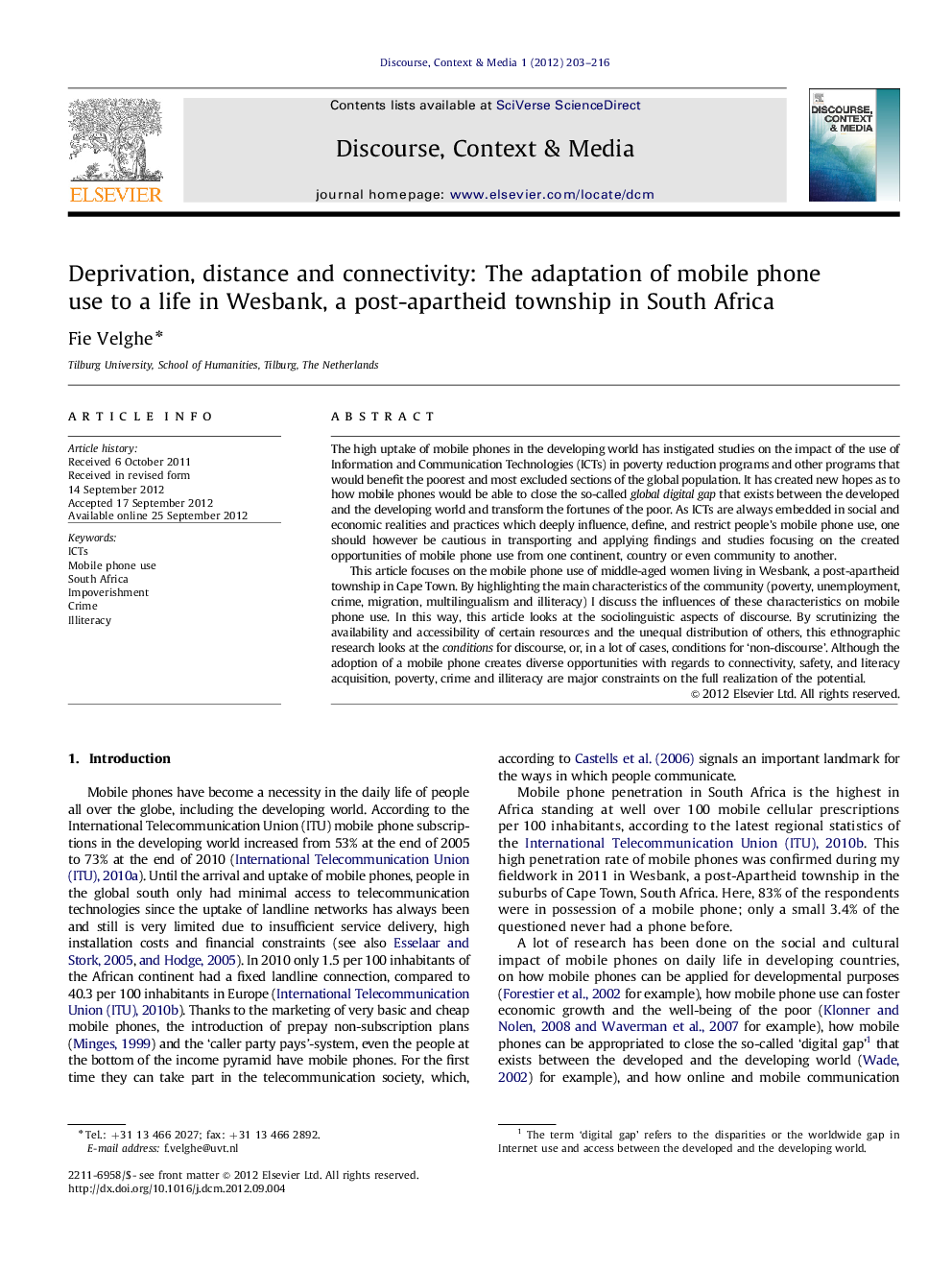| کد مقاله | کد نشریه | سال انتشار | مقاله انگلیسی | نسخه تمام متن |
|---|---|---|---|---|
| 1100649 | 953457 | 2012 | 14 صفحه PDF | دانلود رایگان |

The high uptake of mobile phones in the developing world has instigated studies on the impact of the use of Information and Communication Technologies (ICTs) in poverty reduction programs and other programs that would benefit the poorest and most excluded sections of the global population. It has created new hopes as to how mobile phones would be able to close the so-called global digital gap that exists between the developed and the developing world and transform the fortunes of the poor. As ICTs are always embedded in social and economic realities and practices which deeply influence, define, and restrict people’s mobile phone use, one should however be cautious in transporting and applying findings and studies focusing on the created opportunities of mobile phone use from one continent, country or even community to another.This article focuses on the mobile phone use of middle-aged women living in Wesbank, a post-apartheid township in Cape Town. By highlighting the main characteristics of the community (poverty, unemployment, crime, migration, multilingualism and illiteracy) I discuss the influences of these characteristics on mobile phone use. In this way, this article looks at the sociolinguistic aspects of discourse. By scrutinizing the availability and accessibility of certain resources and the unequal distribution of others, this ethnographic research looks at the conditions for discourse, or, in a lot of cases, conditions for ‘non-discourse'. Although the adoption of a mobile phone creates diverse opportunities with regards to connectivity, safety, and literacy acquisition, poverty, crime and illiteracy are major constraints on the full realization of the potential.
► We examine mobile phone use of women in an impoverished community in South Africa.
► Society and technologies are dialectically related.
► Socio-economic circumstances shape the technology as much as vice versa.
► Mobile phones create new opportunities with regards to safety, identity, and contact.
► Poverty puts a major constraint on the full potential.
Journal: Discourse, Context & Media - Volume 1, Issue 4, December 2012, Pages 203–216